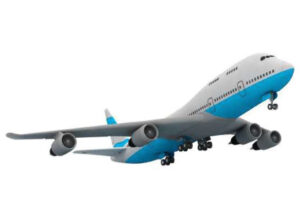Table of Contents:
- Clearing Air Shipments under Section 321 Rules with CFS (Container Freight Station): Common Customs Filing Types
- ACE Air Electronic Manifest
- Air Cargo Advance Screening (“ACAS”)
- Entry Type 86
- Express Consignment Carrier Facility (ECCF) vs. Container Freight Station (CFS)
- Express Consignment Carrier Facility (ECCF)
- Container Freight Station (CFS)
- A Closer Look at CFS Clearance
- CFS Cost Savings Compared to Using an ECCF
- Shipping with CrimsonLogic Ecommerce Solution
Shippers have multiple options to ship and clear eCommerce orders intended for U.S. buyers. One cost-effective option especially for high-volume parcels is using a CFS (Container Freight Station) through ACE and Entry Type 86. Compared to the express clearance process at an Express Consignment Carrier Facility (ECCF), it is more affordable for shippers as they can save on the ECCF per shipment clearance fee. Read on to learn more about clearing air shipments under Section 321 Rules with CFS (Container Freight Station).
Clearing eCommerce shipments using a CFS can be enabled by coupling ACE air manifest and duty-free Type 86 entry electronic filing to the U.S. Customs CBP. First, let us understand what are the common U.S. Customs Filing types and the differences between the facilities where eCommerce shipments can be processed.
Clearing Air Shipments under Section 321 Rules with CFS (Container Freight Station): Common Customs Filing Types
ACE Air Electronic Manifest
Air carriers or their authorized agents are responsible for transmitting pre-arrival cargo data via the Automated Commercial Environment (“ACE”) at least four hours before arrival to the CBP. This enables streamlining and facilitating the global exchange of safe and legitimate goods.
Only an importer or Customs Broker, as identified by the ABI filer code and importer’s bond, may provide advance consolidated (house) air shipment information to the CBP. Freight forwarders with a customs brokerage division or an in-house Customs Broker also have the option to transmit house bills to the CBP. Importers typically clear Section 321 air shipments through either ECCF, Custom Broker, CFS or a third-party service. Each option has its pros and cons.
Air Cargo Advance Screening (“ACAS”)
In addition to the eManifest, carriers or appointed freight forwarders must also submit cargo data to CBP prior to loading shipments onto an aircraft, to fulfil the ACAS requirements by the CBP and the Transportation Security Administration (“TSA”). The ACAS program has been mandatory since June 2018. It ensures national safety and security by targeting high-risk air cargo while clearing legitimate shipments faster.
The inbound air carrier or freight forwarders with prior knowledge and access to accurate ACAS data can file the ACAS data. For effective targeting to occur prior to loading, it is essential that the most accurate ACAS data be filed at the earliest stage possible within the supply chain.
With the massive amount of eCommerce parcels entering the U.S., the ACAS filing requirements targets contraband and illegal parcels while expediting the release of legitimate shipments. Mandatory ACAS requirements meant improved support and security for the small parcel and air cargo industries.
Entry Type 86
Entry Type 86 is a duty-free Customs entry type intended to facilitate the increased volume of low-value shipments into the U.S. while improving border security and safety. Shipments into the US with a de minimus value of less than $800 can be classified under the Entry Type 86. When imported under Entry Type 86, shippers do not have to file for formal entry of their goods into the country or pay taxes and duties. Cargo of these trade goods are considered duty free so long as the relevant CBP customs filings are completed. A customs broker is normally appointed by the owner, purchaser, or shipper of Section 321 low-valued shipments to file Entry Type 86.
Express Consignment Carrier Facility (ECCF) vs. Container Freight Station (CFS)
Most eCommerce shipments are processed either through an ECCF or CFS after entering into the U.S. where shipments are consolidated or de-consolidated, before the transfer for last mile delivery.
Express Consignment Carrier Facility (ECCF)
An ECCF is a specialized bonded facility that has been authorized by the port director to process large volume of low-value parcels. ECCFs are usually located at central hubs or key airports. Clearance is fast at but shippers pay a premium per shipment clearance charge for the convenience. They will also need an international carrier bond and a custodian bond.
Container Freight Station (CFS)
Container Freight Stations (CFS) are seeing a rising demand due to overall growth of eCommerce and Less than Container Load (LCL) shipments. Aside from processing large volume of shipments, CFS are also responsible for customs inspection and clearance procedures. CFS are commonly located at key ocean ports and airports where cargo containers are transported to and from. Although clearance may not be as fast as ECCFs, you will be guaranteed of cost savings.
A Closer Look at CFS Clearance
A CFS is a bonded warehouse for shipment consolidation and deconsolidation, usually located at a port or terminal.
Less than Container Load shipments are combined at a CFS to make a full container load (consolidation) and vice versa (deconsolidation). It is also a place for temporary cargo storage. The eCommerce boom has increased the demand for CFS as they serve as a central hub for secure storage, clearance and processing.
A CFS has many other functions:
- Customs processing (cargo examination, valuation, classification, manifest filing, clearance)
- Container stuffing (sealing and labelling of containers, clearing empty containers, and moving full containers to port, maintaining containers, container inventory)
- Temporary storage space for import/export shipments
- Transport and logistics services to and from the terminal
- Handling of breakbulk or non-containerized cargo
The importer, their customs broker or a steamer agent files the required documents to CBP and arranges for the cargo to be moved to a CFS. Once the shipment arrives at the entry port, it is forwarded to the CFS where it is unloaded and de-stuffed. The broker or importer’s agent will then file the customs entry for cargo clearance. Once the shipment is approved by CBP, the CFS agent will release the shipments for final delivery.
CFS Cost Savings Compared to Using an ECCF
CFS is a popular alternative in the processing of eCommerce parcels due to the low-cost clearance using the Section 321 Type 86 clearance method. The key advantage is not having to pay the per shipment fee for clearance as compared to the ECCF express clearance. Despite of the minor inconvenience of slower clearance time and no weekend services provided at CFS, the cost benefits may outweigh these considerations.
Shipping with CrimsonLogic Ecommerce Solution
CrimsonLogic eCommerce import program combines Customs Compliance filing (ACAS, ACE, Entry Type 86), CFS Section 321 clearance, and logistics arrangements for companies looking for a simple yet cost-effective solution to bring large volume of eCommerce parcels into the U.S.. With more air and ocean port options and the ability to clear PGA (other government agencies) goods, CrimsonLogic solution offers higher flexibility and better cost savings compared to shipping with large express carriers, ECCFs, or other postal options. Supported with a team of experts in trade compliance and Customs clearance, CrimsonLogic is the leading choice to enable you to ship faster, easier and at a more affordable rate.
Learn more by visiting our page on CFS (Container Freight Station) to clear air shipments under Section 321 rules or contact us today!






